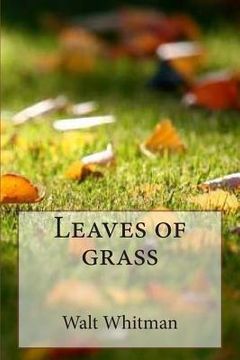Walt Whitman (1819-1892) es, sin lugar a dudas, el poeta más influyente de las letras estadounidenses. Nació en West Hills, Long Island, siendo el segundo de nueve hijos en una familia cercana al credo cuáquero. A los once años finalizó sus estudios formales y empezó a trabajar como aprendiz en el semanario The Patriot, donde comenzaría a escribir sus primeros textos. Tras su paso por otros periódicos y revistas, en 1850 decidió dedicarse plenamente a la poesía. Cinco años más tarde vería la luz la primera edición de la celebérrima Hojas de hierba, integrada por doce poemas y cuyos 795 ejemplares fueron costeados por el mismo autor. El poemario despertó gran interés y fue ampliamente distribuido, en parte por la fascinación que despertó en el filósofo Ralph Waldo Emerson. Durante la Guerra de Secesión, Whitman ejerció voluntariamente como enfermero en Washington D.C., experiencia que recogería en El gran ejército de la enfermedad (1863) y Memorias de la guerra (1875). Finalizado el conflicto en 1965, publicó Redobles de tambor. Mientras se empleaba en la Oficina del Fiscal General, Whitman siguió alzando la pluma para escribir versos como los de «¡Oh, Capitán! ¡Mi Capitán!», que, junto a otros, irían completando las sucesivas ediciones de Hojas de hierba hasta la novena y definitiva, que constó de un total de más de cuatrocientos poemas.
Ver más
Ver menos

